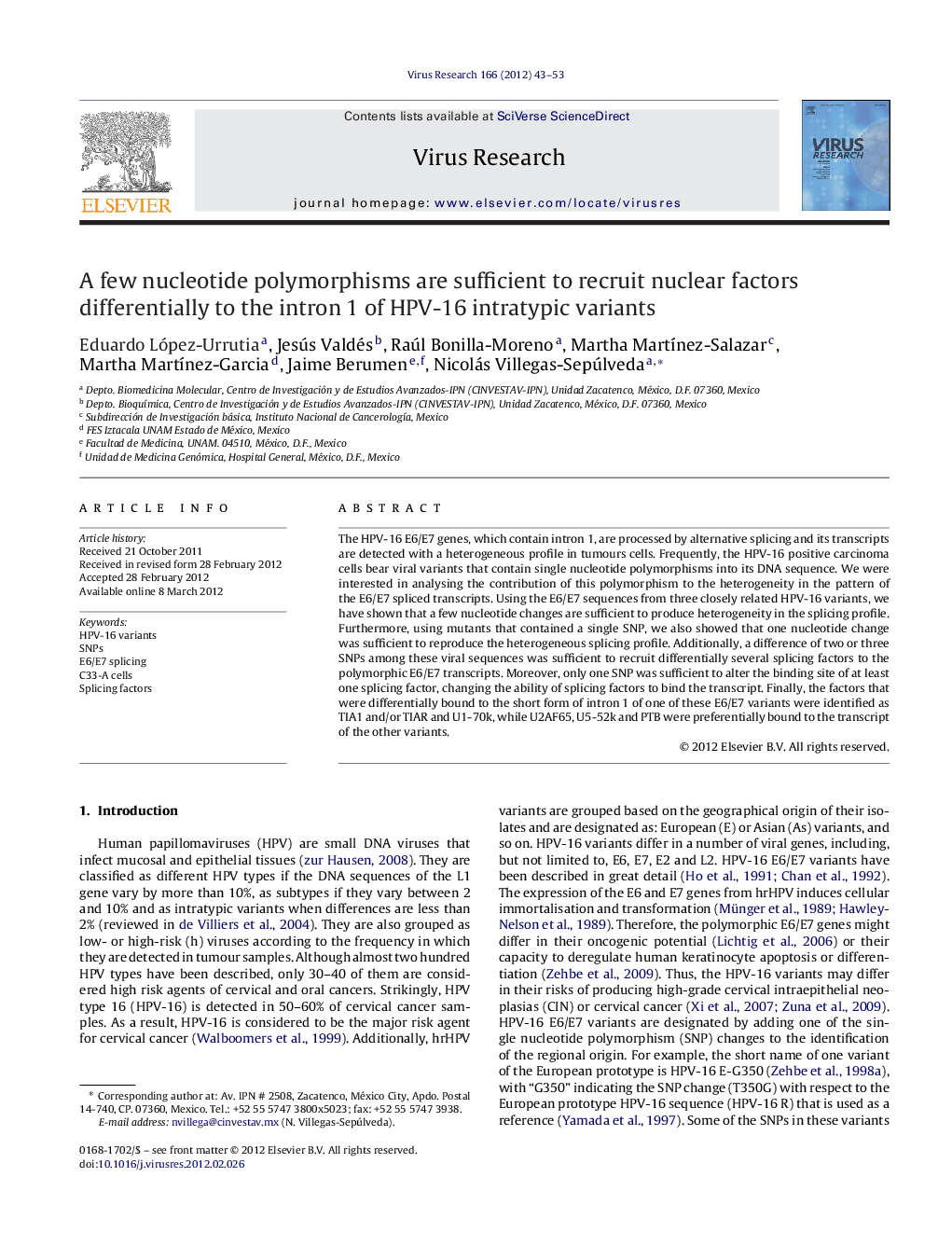| Article ID | Journal | Published Year | Pages | File Type |
|---|---|---|---|---|
| 3428715 | Virus Research | 2012 | 11 Pages |
The HPV-16 E6/E7 genes, which contain intron 1, are processed by alternative splicing and its transcripts are detected with a heterogeneous profile in tumours cells. Frequently, the HPV-16 positive carcinoma cells bear viral variants that contain single nucleotide polymorphisms into its DNA sequence. We were interested in analysing the contribution of this polymorphism to the heterogeneity in the pattern of the E6/E7 spliced transcripts. Using the E6/E7 sequences from three closely related HPV-16 variants, we have shown that a few nucleotide changes are sufficient to produce heterogeneity in the splicing profile. Furthermore, using mutants that contained a single SNP, we also showed that one nucleotide change was sufficient to reproduce the heterogeneous splicing profile. Additionally, a difference of two or three SNPs among these viral sequences was sufficient to recruit differentially several splicing factors to the polymorphic E6/E7 transcripts. Moreover, only one SNP was sufficient to alter the binding site of at least one splicing factor, changing the ability of splicing factors to bind the transcript. Finally, the factors that were differentially bound to the short form of intron 1 of one of these E6/E7 variants were identified as TIA1 and/or TIAR and U1-70k, while U2AF65, U5-52k and PTB were preferentially bound to the transcript of the other variants.
► HPV-16 E6/E7 oncogenes are alternatively spliced. ► The E6/E7 splicing profile is heterogeneous in cancer cells. ► we study the role of HPV-16 SNPS in this heterogeneity. ► A few nucleotide changes in the E6/E7 sequence were sufficient to produce heterogeneity. ► Nuclear factor that were differentially bound to the intron of HPV-16 variants were identified.
